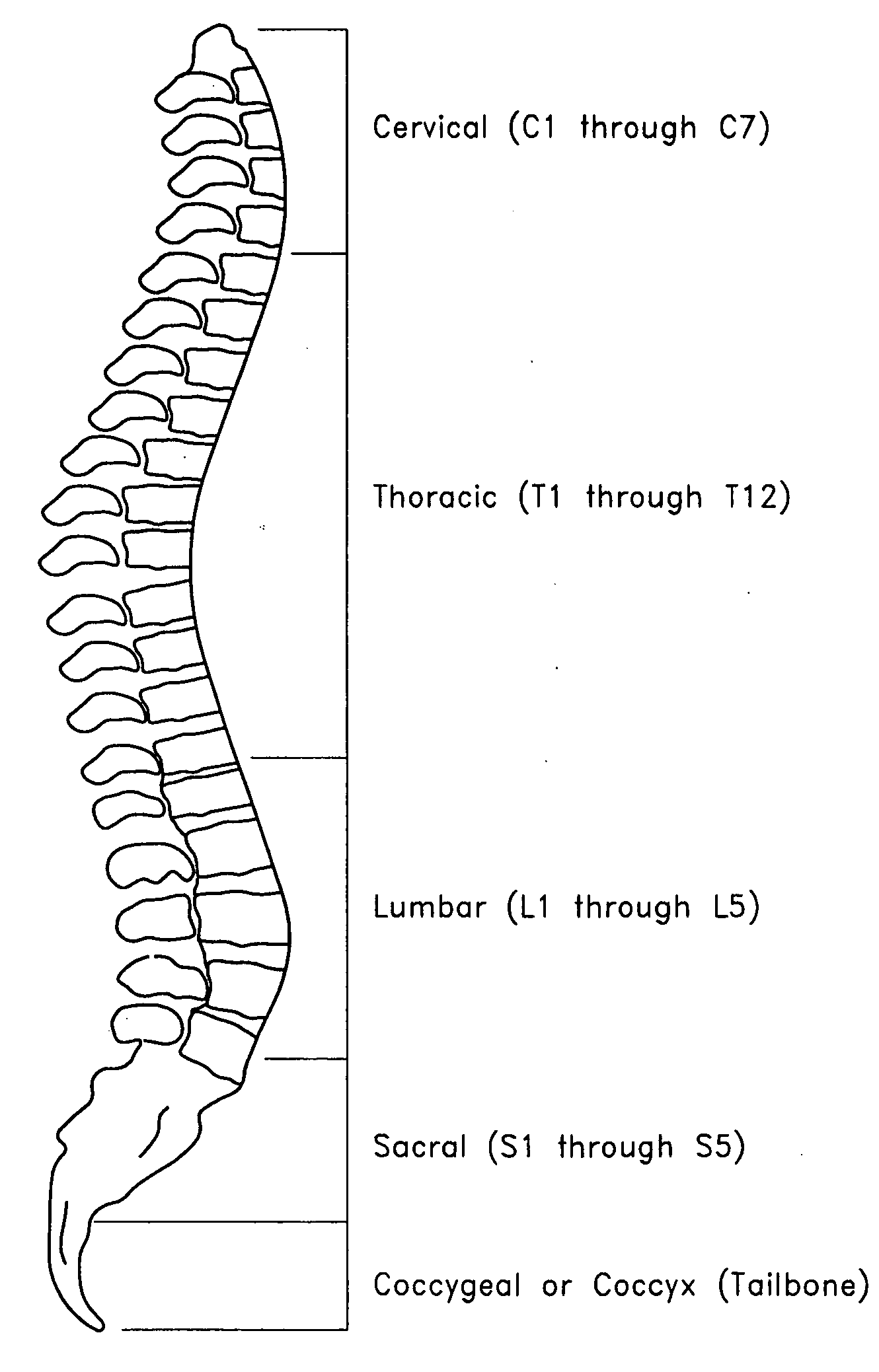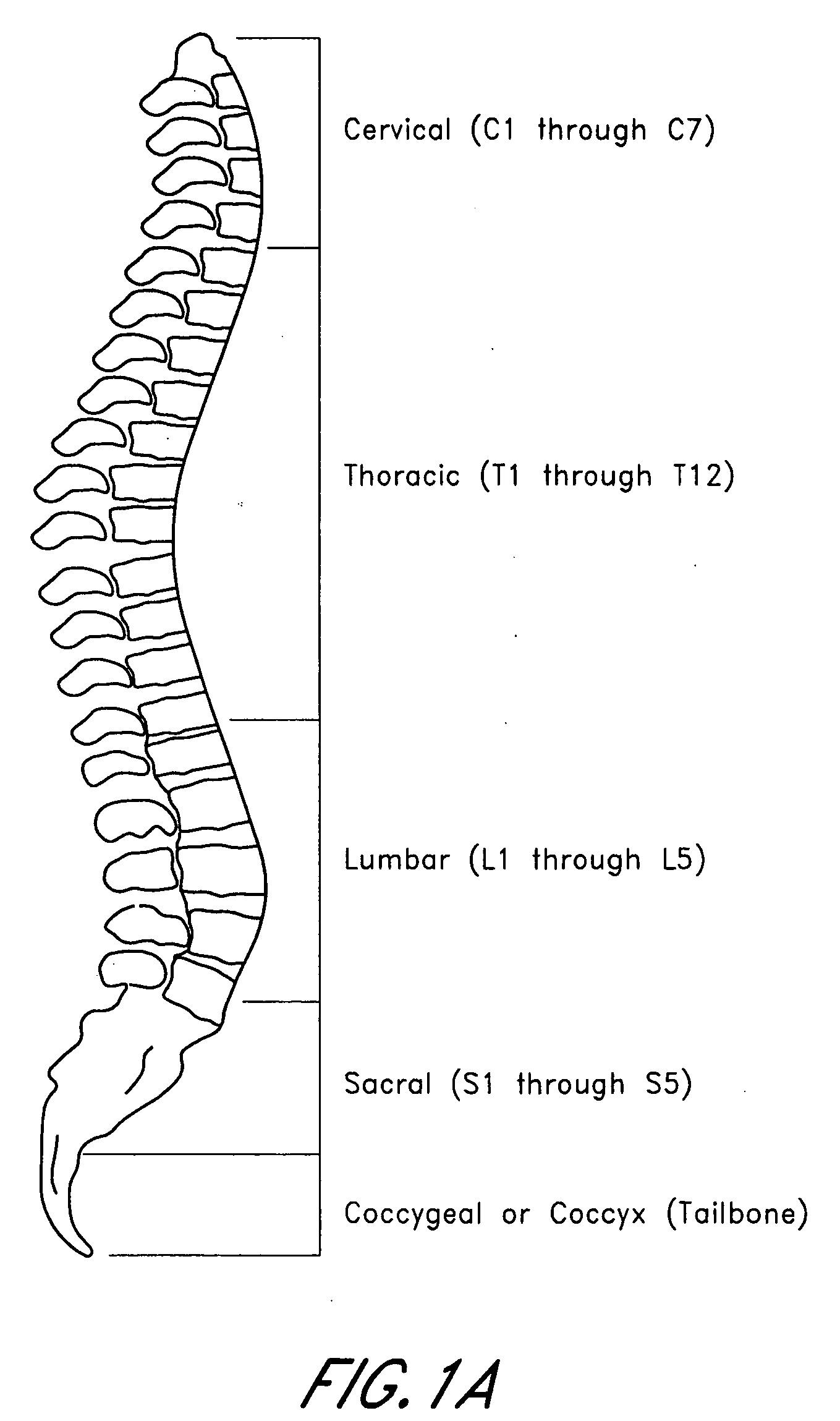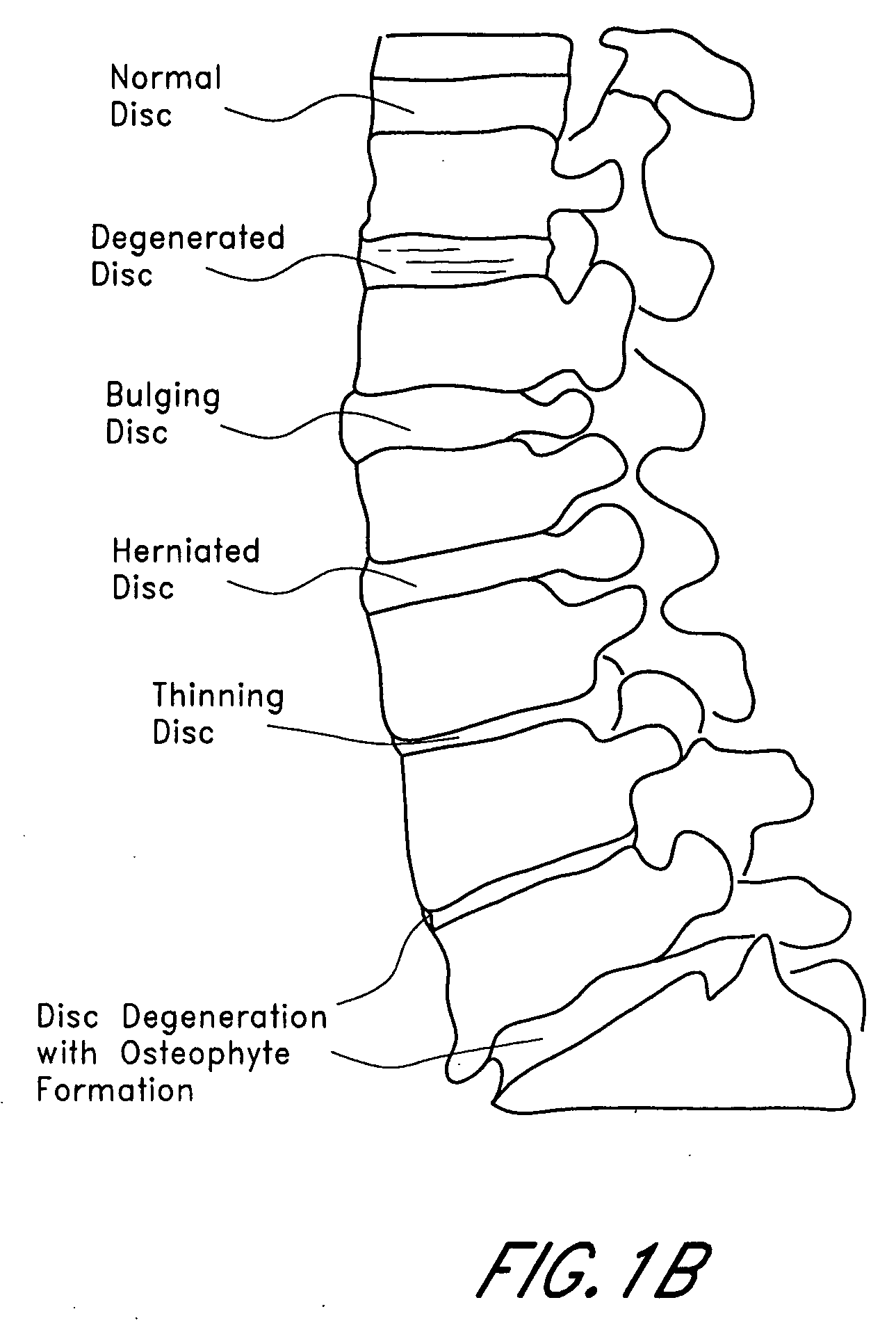Guide pin for guiding instrumentation along a soft tissue tract to a point on the spine
a soft tissue tract and spine technology, applied in the field of instruments, can solve the problems of affecting the productivity of the workforce and health care expense, unable to restore normal disc function, and about 70% of the procedures performed will be successful, and achieves the effects of less immediate trauma, blood loss, and easy adaptability to other directions
- Summary
- Abstract
- Description
- Claims
- Application Information
AI Technical Summary
Benefits of technology
Problems solved by technology
Method used
Image
Examples
Embodiment Construction
[0135] In accordance with one aspect of the embodiments described herein, there are provided surgical instrumentation systems and techniques for efficiently and atraumatically accessing and preparing treatment sites within the spine, such as, for example, vertebral motion segments, for subsequent therapeutic spinal procedures. In one approach, the step of accessing the treatment site includes using fluoroscopic imaging to visually align one or more components of the instrumentation system via a percutaneous, anterior trans-sacral axial approach. In another aspect, the treatment site includes a spinal disc and the subsequent therapeutic procedure includes nucleectomy. In yet another aspect, the therapeutic procedure includes immobilization devices to facilitate fusion; deployment of augmentation media; deployment of dynamic stabilization implants, or mobility devices to preserve or restore physiologic function.
[0136] In accordance with one aspect of the embodiments described herein,...
PUM
 Login to View More
Login to View More Abstract
Description
Claims
Application Information
 Login to View More
Login to View More - R&D
- Intellectual Property
- Life Sciences
- Materials
- Tech Scout
- Unparalleled Data Quality
- Higher Quality Content
- 60% Fewer Hallucinations
Browse by: Latest US Patents, China's latest patents, Technical Efficacy Thesaurus, Application Domain, Technology Topic, Popular Technical Reports.
© 2025 PatSnap. All rights reserved.Legal|Privacy policy|Modern Slavery Act Transparency Statement|Sitemap|About US| Contact US: help@patsnap.com



